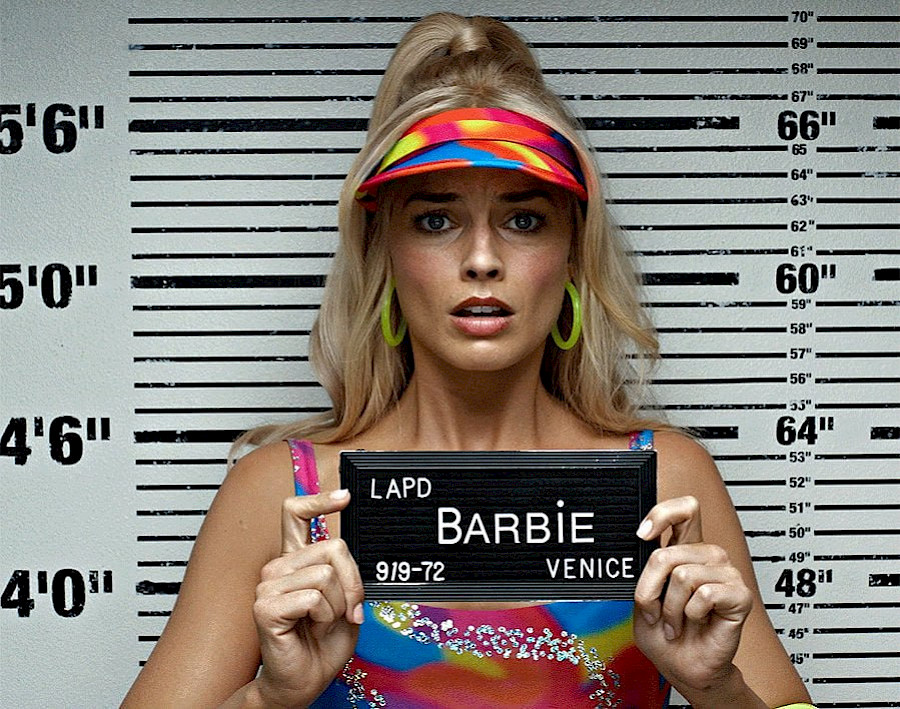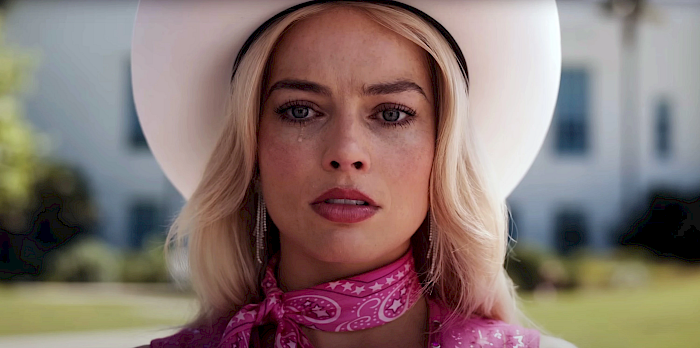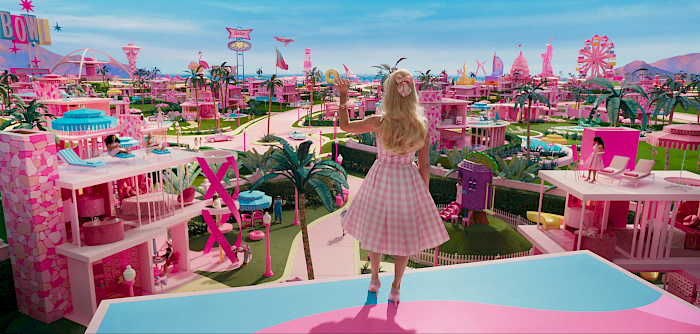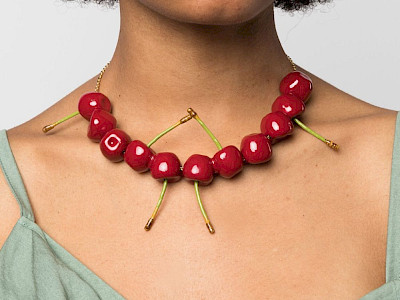
Who is to blame for the problems of women?
If you love Barbie, then this movie is for you. If you hate Barbie, then this movie is for you. In today's world, expressing an unequivocal 'For' or 'Against' position on any issue is crucial, and the film's trailer leaves no choice for anyone. "Do you love the Barbie world? Watch and enjoy! Are you against Barbie dolls? The more you look! And we will try to convince you to change your anger to mercy. By the way, the statement is accurate. The filmmakers have crafted it in a way that you'll want to watch it dozens of times, leaving you unsure whether it's a tribute to Barbie fans or an argument against her opponents.

Tempered by scandals
By the way, Barbie faced opponents from her very first appearance at the American Toy Fair in 1959. Back then, negative interpretations of Barbie hysteria were much more prevalent. Concerned mothers, worried about their daughters' moral purity, demanded the removal of this unchildishly elegant model with long legs and a slender figure from children's store shelves. On the other hand, some mothers, worried about their children's self-esteem, argued that the doll promoted an unrealistic and discriminatory standard of beauty for girls. Barbie was accused of promoting racism, sexism, and even contributing to disorders like anorexia and bulimia, which became known as the 'Barbie syndrome.' The revelation that Barbie was not an original creation but a copy of the German doll Bild Lilly, a character from adult comics, further fueled the controversy. Ruth Handler, Barbie's creator, purchased several Bild Lilly dolls during her trip to Europe and redesigned them for her own brand. In 1964, Mattel, Handler's company, had to acquire the rights to Bild Lilly and cease production to protect its reputation.
Parents were not only frightened by the "ideal" Barbie but also by her immorality. For the first time in human history, adults were genuinely concerned about a toy's way of life. Barbie's every move was scrutinized more closely than real celebrities; each new model faced more criticism than TV shows, textbooks, or school cafeteria menus. "Videobarbie" faced accusations of espionage, and Barbie, a cashier at McDonald's, was criticized for promoting a non-prestigious profession. In 1992, Talking Barbie phrases such as "Math is hard," "I love shopping," or "let's have a party!" were seen as insults to girls' intelligence and interests, propagating stupidity and a consumerist lifestyle. Even scientists and professors from institutes joined the conservatives in criticizing the doll for excessive materialism, highlighting that Barbie could distort children's perception of reality, making them believe that girls should aspire to a luxurious villa, a cool boyfriend, and an extensive wardrobe.
During the same period, when Mattel released a pregnant Midge, Barbie's best friend, the company faced accusations of promoting teenage pregnancy in unison, leading to the withdrawal of the novelty from the market. Mattel seemed to resort to this tactic in response to nearly every societal scandal, even when criticisms focused solely on technical flaws. In their efforts to quell the uproar, it appeared that Mattel had almost forgotten the true nature of the relationship between girls and their dolls. But eventually, they remembered.

If you hate Barbie…
Greta Gerwig's film, which has already become the highest-grossing movie in Warner Bros. history, did not escape controversy. A surprising critic emerged in Vietnam when a scene depicted China's territorial claims on a children's map drawn with colored crayons. However, this dispute is best left to politicians, far removed from Barbie hysteria. Let's return to the scandals associated with the doll itself, particularly how the filmmakers remembered and portrayed them. The perception of these scandals varies depending on the relevance of the criticism. When the creators openly mock characters like Midge and Alan, who are misunderstood by everyone, the accusations of the doll's toxicity gain credibility.
When Margot Robbie's character in the Real World faces allegations of sexualization, capitalism, negative influences on girls, unattainable beauty standards, a rollback of feminism, and even fascism, she expresses open bewilderment. She has known her whole life that everything is quite the opposite. Barbie dolls are designed to help girls navigate the adult world. Barbie is not just a "professional FIFA," as critics suggest, but also a scientist, an astronaut, a chef, a stewardess, a pilot, a doctor, a judge, and more. Playing with a Barbie hockey player won't turn a girl into a glamorous fool. A girl won't develop insecurities due to Barbie's stereotypical proportions if there's a healthy family environment. Gloria, who played with Barbie, grew up, found a family, a home, and a successful job in a large corporation (guess which one?). Her sadness doesn't stem from the doll but from the realities of adulthood in the Real World. So, where does the truth lie? Is it with parents who shift the responsibility of education onto the doll, or with manufacturers encouraging millions of children to pursue their dreams?
Interestingly, the film does not portray Mattel in a favorable light. Their on-screen counterpart is a fundamental target for ridicule. Even the FBI can't match their archaic practices and office setup (recall Dan and Aaron's phone conversation). The board of directors is composed of patriarchal-minded men, and the CEO, played by Will Ferrell, is a spoiled, cynical misogynist. What if, at great sacrifice, they restore justice and restore Barbie's reputation and ideal life?
It's important to note that Greta Gerwig specifically addresses those who criticize Barbie for her "negative influence" on girls. She doesn't hold back when countering those who accuse the doll of promoting feminism, dismantling patriarchy, and undermining family values. In fact, Gerwig places the blame on them for the "Barbie problem" by highlighting the vulnerability of women in the Real World and their absence from positions of power, suggesting, "Barbies are meant to help girls find their way in the adult world, but you, men, want to hinder this progress and keep us confined. So, get over it; no one cares about Ken.

If you love Barbie...
Then set aside all the political, social, and ethical interpretations, hints, and agendas. This film isn't about feminism, patriarchy, or Barbie's alleged negative influence. It's a heartwarming love story between a girl and her doll, filled with nostalgic references to the doll's history, tailored especially for the fans. It serves as a wistful reminder that, no matter our age, there's a cherished toy tucked away in the attic that still holds our affection. Who knows, maybe it can mend depression, banish cellulite, and replace thoughts of despair with self-belief.
Toys are the initial love of every one of us. Who can forget their soft bunny, doll, car, or building set? The joy and excitement upon receiving such a toy for a birthday or during the holidays are unforgettable. Who hasn't found solace in the presence of their toy during moments of sadness or loneliness? Toys aren't mere playthings; they are our companions, confidants, protectors. They are part of our childhood, our history, our very essence. This source of smiles, joy, and warmth bridges our connection to the past, making us truly human.
A person's first love is closely intertwined with their first toy. During this tender stage of life, whether playing with a doll, a robot, or a plush dog, a child explores the world, grapples with emotions, nurtures their imagination, and creates a unique realm of selfless affection. This bond forms the foundation for understanding trust, respect, and connection in future relationships. The toy, which never inflicts harm, becomes a steadfast companion, soaring on the wings of imagination in a world where the child develops their first notions of caring, sharing, and personal experiences. In this act of boundless affection, the child discovers not just a toy but also the beginnings of a spiritual connection that will endure throughout their life, intertwined over time with real emotions and relationships. Amid the ongoing debate surrounding Barbie, it appears that many have overlooked the child's perspective.



